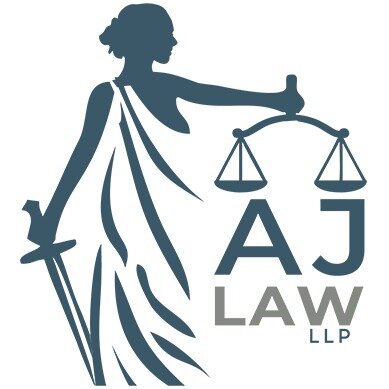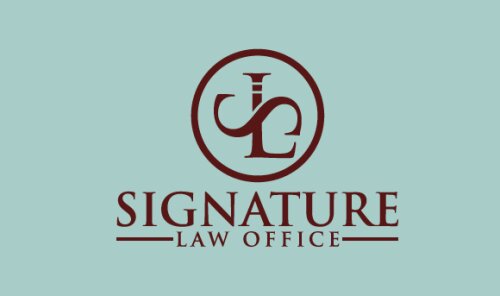Best Dependent Visa Lawyers in Toronto
Share your needs with us, get contacted by law firms.
Free. Takes 2 min.
List of the best lawyers in Toronto, Canada
About Dependent Visa Law in Toronto, Canada
A Dependent Visa in Canada allows family members of someone who is already a resident, work permit holder, or student in Canada to join them. These visas are integral in maintaining family unity and supporting those living in Canada by allowing immediate family members such as spouses, common-law partners, and dependent children to stay for the duration of the primary visa holder's permit. While the application process is managed federally by Immigration, Refugees and Citizenship Canada (IRCC), understanding local nuances is beneficial, particularly in large, diverse cities like Toronto.
Why You May Need a Lawyer
Seeking legal help for a Dependent Visa is often necessary due to the complexities involved in the application process and potential hurdles one might face. Common situations where legal assistance can be crucial include:
- Complicated family dynamics, such as non-traditional relationships or guardianship questions.
- Difficulty in proving relationships due to non-standard documentation.
- Understanding and navigating the eligibility criteria, especially if dealing with rejections or appeals.
- Legal implications stemming from changes in the primary visa holder's status.
An experienced immigration lawyer can provide clarity, ensure the accuracy of submissions, and enhance the chances of a successful application.
Local Laws Overview
While immigration is federally regulated in Canada, local expertise can amplify understanding. Key legal aspects to be aware of include:
- The application process often requires providing proof of the relationship between the primary visa holder and the dependent, which must align with Canadian immigration standards.
- Dependent Visa holders might need additional permissions to work or study in Toronto, which can require supplementary applications.
- Local cultural and legal advice can aid in better preparing for settlement within the Toronto area, highlighting resources and community support available for newcomers.
Frequently Asked Questions
What is a Dependent Visa in Canada?
A Dependent Visa allows family members of individuals residing or working in Canada to enter and remain in the country legally. This visa supports family unity by enabling spouses, partners, and children to live with the main visa holder.
Who qualifies as a dependent?
Typically, spouses, common-law partners, and dependent children (under 22 years of age, without a partner, and financially dependent) qualify as dependents. Exceptions may apply for individuals with certain conditions over the age limit.
Can a dependent visa holder work in Toronto?
While a Dependent Visa itself does not permit working in Canada, dependents may apply for an open work permit. It is important to ensure eligibility and proper application to acquire the necessary work permissions.
How long does it take to process a Dependent Visa application?
Processing times vary based on several factors, including the applicant's country of origin and the volume of applications being handled by IRCC. Generally, it can take several months, and it is advised to check current processing times on the IRCC website.
What documents are required for a Dependent Visa application?
Required documents typically include proof of identity (passports), proof of relationship (marriage certificate, birth certificates), and evidence of financial capability to support dependents. Additional documents may be requested, so checking with IRCC for a detailed list is advisable.
What happens if the primary visa holder's status changes?
If a primary visa holder's status changes, such as a switch from a student to worker or permanent resident, it may impact the dependent's status. It's crucial to review the dependent's visa conditions in such scenarios and possibly seek legal advice.
Can a dependent student attend school in Toronto?
Dependent children can attend primary or secondary schools in Toronto without requiring a separate study permit, making the process smoother for families with school-going children.
What if my Dependent Visa application is denied?
If a Dependent Visa application is denied, the applicant has the opportunity to appeal the decision or submit a new application. Understanding the reason for denial and adequately addressing any concerns is critical. Legal advice may be beneficial in such cases.
Is it possible to include extended family members in a Dependent Visa application?
The Dependent Visa typically covers immediate family members like spouses and children. Extended family members are not usually eligible under this category, though they can explore other family sponsorship options in Canada.
Are there any application fees for a Dependent Visa?
Yes, there are fees associated with the application process, which can vary depending on the specific circumstances and number of dependents involved. It’s important to verify the current fees on the IRCC website.
Additional Resources
To assist you further, consider the following resources:
- **Immigration, Refugees and Citizenship Canada (IRCC):** The official governmental body managing visas and immigration in Canada.
- **Settlement.Org:** Provides helpful information for newcomers settling in Ontario.
- **Toronto Newcomer Office:** Offers municipal support for new residents in Toronto.
- **Local Legal Clinics:** Many community legal clinics in Toronto can offer advice or referrals for immigration-related matters.
Next Steps
If you believe you need legal assistance while applying for a Dependent Visa in Toronto, consider the following actions:
- Consult an immigration lawyer specializing in Canadian Dependent Visa applications to guide you through the process and paperwork.
- Prepare a checklist of necessary documents and ensure all your paperwork is up to date to avoid processing delays.
- Stay informed about current immigration policies by regularly checking updates from IRCC.
- Engage with local newcomer services which might provide invaluable support during your transition.
Taking these proactive steps can greatly enhance your chances of a successful application and smooth transition for your dependents.
Lawzana helps you find the best lawyers and law firms in Toronto through a curated and pre-screened list of qualified legal professionals. Our platform offers rankings and detailed profiles of attorneys and law firms, allowing you to compare based on practice areas, including Dependent Visa, experience, and client feedback.
Each profile includes a description of the firm's areas of practice, client reviews, team members and partners, year of establishment, spoken languages, office locations, contact information, social media presence, and any published articles or resources. Most firms on our platform speak English and are experienced in both local and international legal matters.
Get a quote from top-rated law firms in Toronto, Canada — quickly, securely, and without unnecessary hassle.
Disclaimer:
The information provided on this page is for general informational purposes only and does not constitute legal advice. While we strive to ensure the accuracy and relevance of the content, legal information may change over time, and interpretations of the law can vary. You should always consult with a qualified legal professional for advice specific to your situation.
We disclaim all liability for actions taken or not taken based on the content of this page. If you believe any information is incorrect or outdated, please contact us, and we will review and update it where appropriate.
















